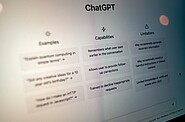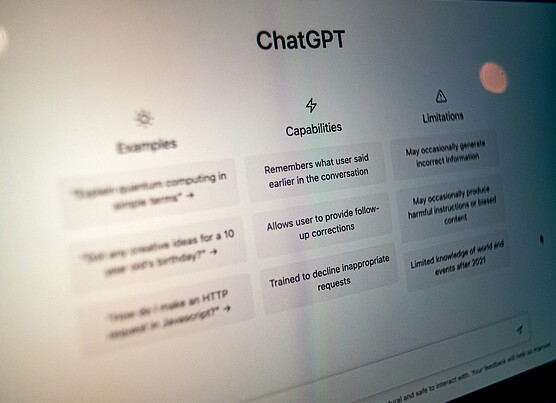Profile
Mirjam Tuk is an associate professor of marketing at RSM Erasmus University, where she teaches various courses to Bachelor, Master and Executive MBA students. She is currently also the PhD coordinator of the department of Marketing Management.
Her research interest centers around how to encourage consumers to make better decisions. To this aim, she studies both fundamental self-contol processes as well as the role of technological advancements. Her work has been published in major journals such as Journal of Consumer Research, Organizational Behavior and Human Decision Processes, Journal of Experimental Psychology - General and Psychological Science. She won an IgNobel award for her work in 2011. Prior to joining RSM, she was an associate professor of marketing at Imperial College Business School, where she taught various marketing courses.
A complete CV can be found here
Publications
Abstract (1)
Academic (1)
-
de Langhe, B., Sweldens, S., Osselaer, S., & Tuk, M. (2009). The Emotional Information Processing System is Risk Averse: Ego-Depletion and Investment Behavior. 604-605.
Article (18)
Academic (18)
-
Celiktutan, B., Klesse, A. K., & Tuk, M. A. (2024). Acceptability lies in the eye of the beholder: Self-other biases in GenAI collaborations. International Journal of Research in Marketing, 41(3), 496-512. https://doi.org/10.1016/j.ijresmar.2024.05.006
-
Zhang, Y., Tuk, M., & Klesse, A. K. (2024). Giving AI a Human Touch: Highlighting Human Input Increases the Perceived Helpfulness of Advice From AI Coaches. Journal of the Association for Consumer Research, 9(3), 344-356. https://doi.org/10.1086/730710
-
Gai, J., Tuk, M., & Sweldens, S. (2022). Light or Regular, Now or Later: The Impact of Advance Ordering and Restrained Eating on Choices and Consumption of Light and Regular Vice Food. Journal of the Association for Consumer Research, 7(4), 492-500. https://doi.org/10.1086/720446
-
Tuk, M., Prokopec, S., & Van den Bergh, B. (2021). Do versus Don't: The Impact of Framing on Goal Level Setting: Journal of Consumer Research, Volume 47, Issue 6, April 2021, Pages . Journal of Consumer Research, 1003–1024. https://doi.org/10.1093/jcr/ucaa050, https://doi.org/10.1093/jcr/ucaa050
-
Tuk, M., Verlegh, PWJ., Smidts, A., & Wigboldus, DHJ. (2019). You and I Have Nothing in Common: The Role of Dissimilarity in Interpersonal Influence. Organizational Behavior and Human Decision Processes, 151, 49-60. https://doi.org/10.1016/j.obhdp.2018.12.010
-
Zhao, D., Corsetti, M., Moeini-Jazani, M., Weltens, N., Tuk, M., Tack, J., Warlop, L., & Van Oudenhove, L. (2019). Defecatory urge increases cognitive control and intertemporal patience in healthy volunteers. Neurogastroenterology and Motility, 31(7), Article e13600. https://doi.org/10.1111/nmo.13600
-
Sweldens, S., Tuk, M., & Hütter, M. (2017). How to Study Consciousness in Consumer Research, A Commentary on Williams and Poehlman. Journal of Consumer Research, 44(2), 266-275. https://doi.org/10.1093/jcr/ucx044
-
Tuk, M., Zhang, K., & Sweldens, S. (2015). The propagation of self-control: Self-control in one domain simultaneously improves self-control in other domains. Journal of Experimental Psychology-General, 144(3), 639-654. https://doi.org/10.1037/xge0000065
-
Tuk, M., Zhang, K., & Sweldens, S. (2013). Self-Control Spillover: Impulse Inhibition Facilitates Simultaneous Self-Control in Unrelated Domains. Advances in Consumer Research, 40, 858-859.
-
Verlegh, PWJ., Ryu, G., Tuk, M., & Feick, L. (2013). Receiver Responses to Rewarded Referrals: The Motive Inference Framework. Journal of the Academy of Marketing Science, 41(6), 669-682. https://doi.org/10.1007/s11747-013-0327-8
-
Verhoef, PC., Pauwels, K., & Tuk, M. (2012). Assessing Customer Evaluation and Revenue Consequences of Component Sharing Across Brands in the Vertical Product Line. Journal of Product Innovation Management, 29(4), 559-572.
-
Tuk, M. A., Trampe, D., & Warlop, L. (2011). Inhibitory spillover: Increased urination urgency facilitates impulse control in unrelated domains. Psychological Science, 22(5), 627-633. https://doi.org/10.1177/0956797611404901
-
Tuk, M., Verlegh, PWJ., Smidts, A., & Wigboldus, DHJ. (2009). Interpersonal relationship moderate the effect of faces on person judgments. European Journal of Social Psychology, 39(5), 757-767. https://doi.org/10.1002/ejsp.576
-
Tuk, M., Verlegh, PWJ., Smidts, A., & Wigboldus, DHJ. (2009). Sales and sincerity: The role of relational framing in word-of-mouth marketing. Journal of Consumer Psychology, 19(1), 38-47. https://doi.org/10.1016/j.jcps.2008.12.007
-
Tuk, M., Verlegh, PWJ., Smidts, A., & Wigboldus, DHJ. (2009). Wat gebeurt er als je consumenten beloont voor mond tot mond reclame? Ontwikkelingen in het Marktonderzoek / Jaarboek MOA, 2009, 119-132. http://hdl.handle.net/1765/20512
-
Tuk, M., Verlegh, PWJ., Smidts, A., & Wigboldus, DHJ. (2009). The impact of social categorization on persuasion attempts. Advances in Consumer Research, 36, 596-597.
-
Tuk, M., Verlegh, PWJ., Smidts, A., & Wigboldus, DHJ. (2005). Activation of salesperson stereotypes affects perceptions of word-of-mouth referral. Advances in Consumer Research, 32(1), 256-257.
-
Verlegh, PWJ., Verkerk, C., Tuk, M., & Smidts, A. (2004). Consumers or sellers? The role of persuasion knowledge in customer referral. Advances in Consumer Research, 31(1), 304-305.
Chapter (2)
Academic (2)
-
Klesse, A. K., Zhang, Y., & Tuk, M. (2024). Algorithm Aversion. In Elgar Encyclopedia of Consumer Behavior (pp. 5-8). Edward Elgar Publishing. https://doi.org/10.4337/9781803926278.ch02
-
Tuk, M., Smidts, A., Verlegh, PWJ., & Wigboldus, DHJ. (2005). Vriendelijke verkopers of verkopende vrienden. In E. H. Gordijn, & R. Holland (Eds.), Jaarboek Sociale Psychologie (pp. 431-438). ASPO Pers. http://hdl.handle.net/1765/12205
Conference proceeding (3)
Academic (3)
-
Verlegh, PWJ., Smidts, A., Wigboldus, DHJ., & Tuk, M. (2006). I don't trust you, but I buy what you're saying. In G. J. Avlonitis, N. Papavassiliou, & P. Papastathopoulou (Eds.), Sustainable Marketing Leadership Proceedings of the 35th EMAC Conference (Vol. 34). EMAC.
-
Verlegh, PWJ., Smidts, A., & Tuk, M. (2005). The "who?", "how?", and "why?" of word of mouth. In C. P. Haugtvedt, D. Merunka, & L. Warlop (Eds.), The La Londe seminar - 32nd International Research Seminar in Marketing (pp. 312-322)
-
Tuk, M., Smidts, A., Verlegh, PWJ., & Wigboldus, DHJ. (2005). An interesting study on persuasion:The role of source perception and ulterior motives in interpersonal influence. In Proceedings of the 34th EMAC conference EMAC.
Doctoral Thesis (1)
Internal (1)
-
Tuk, M. (2008). Is friendship silent when money talks? How people respond to word-of-mouth marketing. [Doctoral Thesis, Erasmus University Rotterdam]. Erasmus University Rotterdam (EUR).
Activities
Additional positions (1)
-
NWOStart date approval: 28 Jan 2025End date approval: 27 Jan 2028Place: UTRECHTDescription: Evaluatie en advies over beursaanvragen
Courses
Topics in Marketing Research A
- Study year: 2024/2025
- Code: BERMASC054
- Level: PhD
Bedrijfssimulatie
- Study year: 2024/2025, 2023/2024
- Code: BK2205
- Level: Bachelor 2, Pre-master
Business Simulation
- Study year: 2024/2025, 2023/2024
- Code: BT2205
- Level: Bachelor 2, Bachelor 3, Pre-master
Past courses
Specialization Module on Consumer Behavior
- Study year: 2023/2024, 2021/2022, 2019/2020, 2017/2018, 2016/2017, 2015/2016
- Code: BERMASC039
- ECTS: 3 Level: Master, PhD
Bedrijfssimulatie
- Study year: 2022/2023, 2021/2022, 2020/2021
- Code: BK2105
- Level: Bachelor 2, Pre-master
Business Simulation
- Study year: 2022/2023, 2021/2022, 2020/2021
- Code: BT2105
- Level: Bachelor 2, Bachelor 3, Pre-master
Featured in the media
-
People think GenAI is perfectly fine in their own work. For others, not so much
People are commonly blind to how much influence Generative AI (GenAI) has over their work, when they choose to enlist the support of technologies such as Chat GPT to complete professional or educational tasks, new research finds.…
Thursday, 15 August 2024 -
New Research Reveals How Blind We Are to the Influence of AI
Research from associate professors Dr Mirjam Tuk and Dr Anne Kathrin Klesse alongside PhD candidate Begum Celiktutan in this article about people often being blind to how much influence Generative AI (Gen AI) has over their work,…
Wednesday, 14 August 2024 -
Marketing professor Mirjam Tuk: 'Be transparent about the use of generative AI'
Tip 1: Marketers who work with generative artificial intelligence (GenAI) would do well to inform colleagues and clients to what extent GenAI has contributed to their work. Four questions and answers for marketers using GenAI in…
Tuesday, 6 August 2024 -
New Research Reveals How Blind We Are to the Influence of AI
Agency-distributed article about RSM research by Mirjam Tuk, Anne-Kathrin Klesse and Begum Celiktutan that finds people are commonly blind to how much influence Generative AI (Gen AI) has over their work when they choose to enlist…
Monday, 22 July 2024 -
When feeling guilty and regretful can boost our goal-achievement rate
Setting vague goals that are inconsistent with your object, can actually be a good thing, as this study showed. If the pandemic has inspired you to run a half-marathon in the new year, or take up virtual Pilates and want to get…
Tuesday, 23 March 2021 -
Asking yourself how many times you’ll skip the gym is the best motivation to go
We all set goals for ourselves that we often do not meet. However, according to new research from the RSM, Erasmus University, honestly asking yourself what you won’t do is the key to successfully meeting your goal. Most people…
Monday, 15 February 2021
Featured on RSM Discovery
Discover the double standards in the acceptability of using generative AI (GenAI) at work. Research reveals people perceive their own use as inspiration while seeing others' use as outsourcing, impacting marketing, policymaking, and education.



